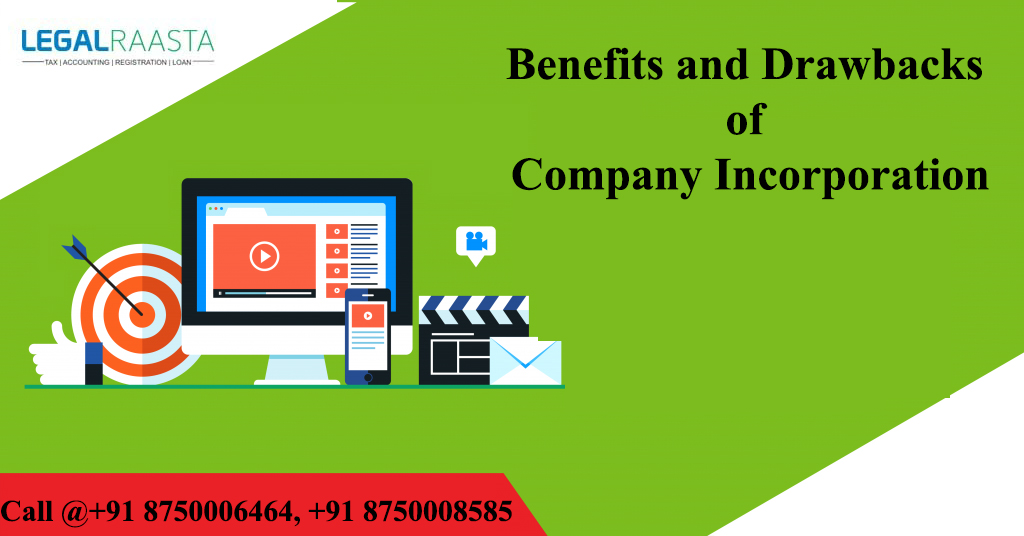Payroll Management -Definition, Importance, Payroll Software and Benefits
Now that we have understood the significance of getting a successful payroll system in place, let’s understand what is really a payroll management system?
In the way you perform the administrative duties of your organization, a good payroll management system becomes a very vital element.
What’s Payroll Management?
Payroll is an important document used by organizations and companies to carry out day-to-day staff Payroll management activities. It is a document containing a list of all employees of a company who receive remuneration for the work carried out or the services offered to that company. It provides a summary of all the money paid to employees by a company within a specific timeframe. The following functions are provided by the payroll.
- It includes the company’s remuneration strategy, which may include bonuses, leave, and deductions.
- It provides a detailed payslip, which can be used for various purposes. It also provides for a detailed breakdown of salary or wages.
- It is used to pay salaries or wages.
- Also, it is used to collect payroll-related inputs.
- It shall be used to determine the actual remuneration.
A company with more than one staff must have a comprehensive payroll to manage its financial activities effectively. The primary function of payroll is to assist the company in the timely payment of staff salaries and salaries. It also contributes to other key activities, such as income tax, unemployment tax, and social security.
In most cases, the state in which the company operates is mandated to have a payroll. Certain jurisdictions require that the company keep payrolls within a specific timeframe.
The administration and maintenance of employee financial reports, such as wages, pensions, deductions, incentives, and other related financial documents, is payroll management. It also involves a continuous review and updating of the payroll database to ensure that the status quo is always recorded with regard to the remuneration of employees.
Importance of Payroll Management
- In many cases, the payroll system is a repetitive and annoying process, which can easily lead to mistakes. The ease of use of the computer and the software reduces the likelihood of such errors. Also, computers provide information, which can be easily stored on storage devices and other online cloud storage systems, which can be accessed using login credentials. This provides important retention of lead records in the event of a system failure or hardware damage.
- This also provides a clear representation of the company’s salary, which is important for a financial assessment. In the case of wage increases, a simple calculation may give the company a full impact of that information on the company’s finances.
- Many companies spend a lot of time managing corporate and employee taxes. Wage management is important as it not only delays planning and managing staff but also saves valuable time, which can be used for other critical corporate activities. And, without proper management of the payroll, the calculation of the relevant factors, including overtime, holidays, and bonuses, can be quite deceptive. Also, different taxes and deductions can apply to different employees. Therefore, a cost-based solution saves valuable time as existing salary planning is simplified and automated.
- In most cases, the data security regulations are high. Employee information is kept as confidential as possible, which translates into different levels of administrative rights and access rights. It also allows workers to have access to their salary impairment.
- Many modern payroll systems are as economical as they are, in most cases, remote cloud solutions. The company only requires active registration to maintain the database. Employee salary management solutions require a very small number of costly resources, which saves a lot of resources. Also, a company can quickly expand or reduce its needs.
Key benefits of a Payroll management system
There are several benefits to using such a service for your business. Some of these are briefly highlighted below:
Employee ethics – By ensuring that your employees are paid fairly and in a timely manner, you strengthen their faith in the financial integrity of your business. This will improve the morale of the staff and motivate them to do better.
Compliance – This means the legal framework that your business should follow. As an employer, you are required to keep various payrolls and payment records for your employees. Every organization that hires workers and pays salaries must comply with labor laws. By having a local payment system, you automatically comply with the employment and labor laws in India.
Manage employee details – You will be able to store and manage all your personal information in one place We will not need to use any additional tools for this purpose.
Produce reports on staff arrivals, wage formation, etc. – A good payment system will simplify the process freely. This can be very useful when looking to get details of any questions related to these issues.
Easy-to-use startup – As a new business, you may not have enough budget to respond to all aspects of your business. Most paid services are free to the first few employees or charge a small fee; which makes it easier for you to pay to set up an app like this.
Time-saving – Since everything managed by the personnel management system is paid for, you will be saving a lot of time. You do not need to manually enter the information for each cycle. You stop it once and let the software handle the rest. The only thing you can do is register new employees for all new appointments.
In India, payroll estimates: Payroll calculations
Calculating Indian payrolls is difficult. There are numerous factors that essential to be evaluated.
Four key components constitute these calculations: basic wage, gross salary, deductions, and net salary
- CTC = Gross Salary + PF + Gratuity Basic Salary is the fixed income of a person. It is the fixed component of one’s compensation case. Basic pay is about 50 % of gross salary. Gross Salary is the sum of basic salary and other fees before tax and other deductions.
- Gross Salary = Basic Salary + HRA + other allowances. There are some variables that are necessary deductions. Deductions cover income tax, EPF, ESI, and PT.
Hence, Net Pay = Gross Salary – Deductions.
Payroll Management Procedures
The salary management process requires careful and careful planning. Ongoing review and monitoring of changes in personal information relating to payments, deductions, and other payments. This salary management process consists of three different stages, which are before, during, and after the salary management function.
- Before considering wages
A variety of factors are considered, including bonuses, leaves, and other benefits. The determination of these factors is based on the approval of the company’s decision-makers. Fees paid to small companies are affected by a few things. For the most prominent companies, payrolls usually require software applications that simplify the entire process. In both cases, all data used must be in accordance with the policy and procedure.
- During salary processing
Verified data is in use. This category includes calculations, taxes, bonuses, and deductions. Verification and verification of all values are done to ensure accuracy and avoid errors.
- After considering wages
All reductions are made here. The total amount allocated to the salary range is determined by the appropriate payment channels.
Payroll Management Methods
There are three basic payment methods that are Excel-based, exported software, and software.
Excel
This is a cheap human resource management option. The first companies and small companies use this method extensively. This approach involves building a salary management template, which allows for the calculation and use of mathematical formulas in Excel Spreadsheets. What’s worse in this way is that it’s a challenge to manage and tend to make mistakes.
Outsourced
This is an option for resourceful companies. The company has a contract with a leading personnel management service provider. Throughout the payment cycle, the company compiles and submits an updated payment schedule to the salary coordinator for consideration. The payroll coordinator is responsible for reviewing and reviewing all payments and deductions for each employee. Although this option simplifies the company’s operations, however, the need for confidentiality can prevent it from paying its employees salaries.
Human resource management software
This provides an easy option for the company. There are many reliable personnel management applications to choose from. Such software applications often provide a template for capturing job information and relevant inputs. The size and design of the company determine the best type of paid software suitable for everyday use.
Other ways to lead
There are a variety of payment methods available to businesses – direct cash, checks (written or printed) cash, or pay cards. While businesses can choose from these types of payment methods, employees are paid with three specific payment levels:
- Hourly salary
- Basic salaries
- Pay commission
What Does Payroll Software Do?
A salary management system is a software program designed to organize all employee payroll and tax filing activities. These functions include saving time, salary calculations, attendance tracking, tax deductions and rebates, printing and delivering checks, direct payments, paying premiums to insurers, and/or paying government taxes. This software can be purchased from an HR software vendor or included in the HR software package as a module within a comprehensive program.
Paid software requires employers to enter details of employees’ salaries and hours – but not more. From there, the software uses data to calculate and drag the capture automatically. Most paid software is automatically updated whenever tax law changes and will remind employers when to submit various tax returns.
Why Should Small Businesses Get Money Processing Software?
Payment is something that has to be done accurately and consistently, so it makes sense for companies to invest in an automated system for these processes. Earnings software can reduce errors, improve compliance, and save time. With easy-to-use options, paid software helps companies everywhere to maintain control over employee processes while offering greater flexibility than paid outsourcing.
Payroll software is easy to use and expensive and can reduce errors in the payment process and reduce working hours including employee hours, salaries, and tax deductions, especially for small businesses. Small business owners can purchase an inexpensive program on their local computer or with a cloud service using a payment model. They can also maintain more control over the payment process through this software, allowing them to compile reports at their own pace and make quick changes if necessary.
What to consider when choosing a payroll software
Ideally, all businesses should have a payroll system. However, the needs of each business will determine the type of paid software that works best. The following are some guidelines when it comes to choosing salary management software.
Reputation and reliability
Get to know your service providers from other companies using their lead services. Reviews about them also provide quality information. Request that software providers also offer a free demo on how you can use their system to see if it suits your business needs.
Security
The corporate payroll system contains very sensitive information about employees and the company. This data should be protected and handled only by trusted people. When choosing a paid software vendor, make sure it has no security issues before and that vendors are fully responsible for any security breaches.
The size of your business
Small and medium-sized businesses may need a leadership system that performs basic functions compared to large companies that require more detail. Also, budgeting for the right program is key to your business. If you are a small business, make an inexpensive software budget. A large company needs to invest heavily in good and secure software.
Software reports and backs up
As a company, you need access to employee reports if necessary. The Tye system should be able to provide manual update options in case you need to correct certain errors. Systems sometimes fail and this requires a proper backup of all salary details in the system.
Compatibility
You need to purchase software that can work seamlessly with other systems in your business. The software should also be flexible enough to accommodate the growth change in your business. It should be easy to integrate with other financial software that you may be using.
Conclusion
In conclusion, no one knows and respects the organization better than you at the end of the day. You are the only one that can decide what the actual needs of your organization are. To do your own analysis, use all of the data mentioned in this article as a reference point. You can also chat and get some feedback from the current users of these payroll sites. Contact the sales staff of each of these software systems directly and address in depth the specifications. By now, it must be obvious that it takes away a lot of tension and logistical pressure from your shoulders with good payroll software. So be sure to thoroughly do your due diligence and take a wise call in this regard. For more details associated with Payroll Management, you can log in to our website services LegalRaasta. Our expert team will assist you in each part related to Accounting & Bookkeeping, Company Registration, Trademark Registration, and its services relatable. You can download our app which is easy to access in android mobiles LegalRaasta APP. Also, you can give us a call at 8750008585 and feel free to send your query on Email: contact@legalraasta.com










